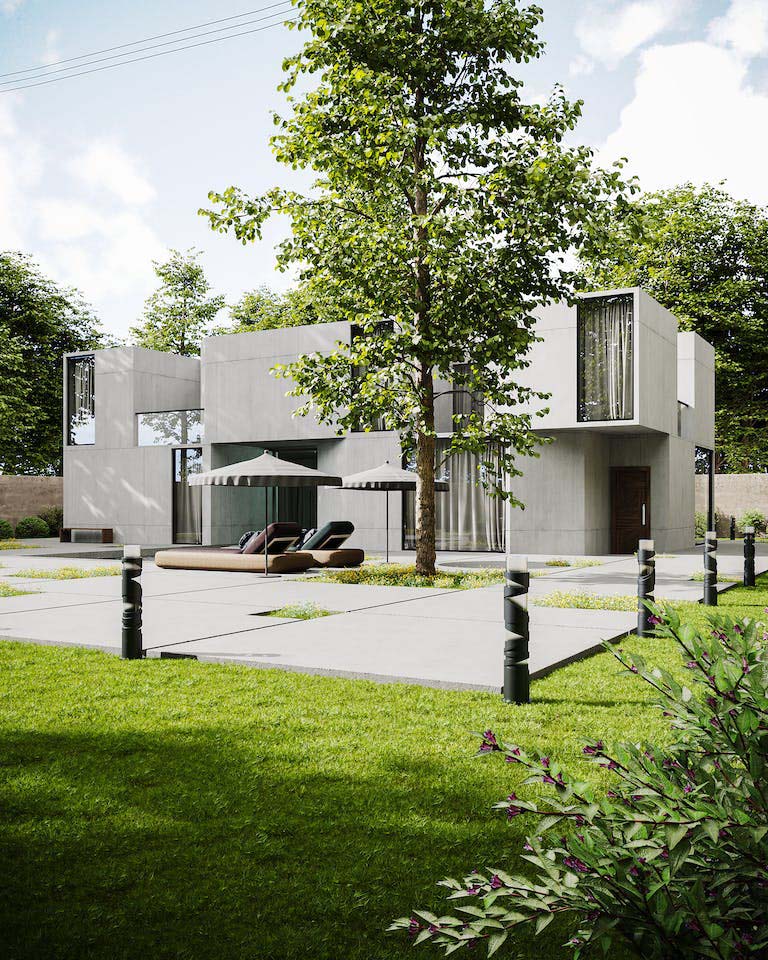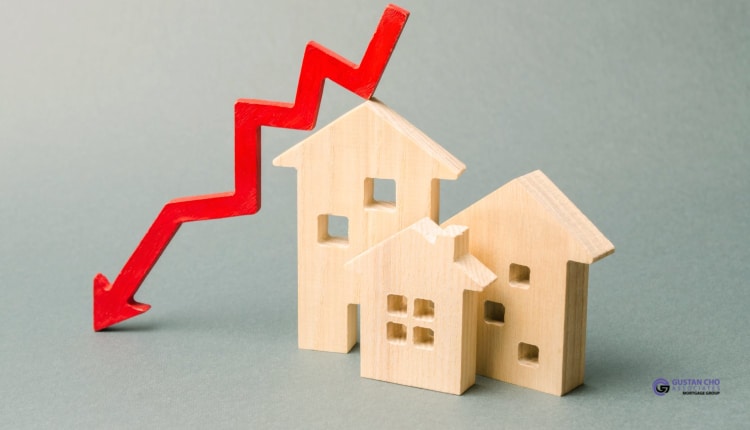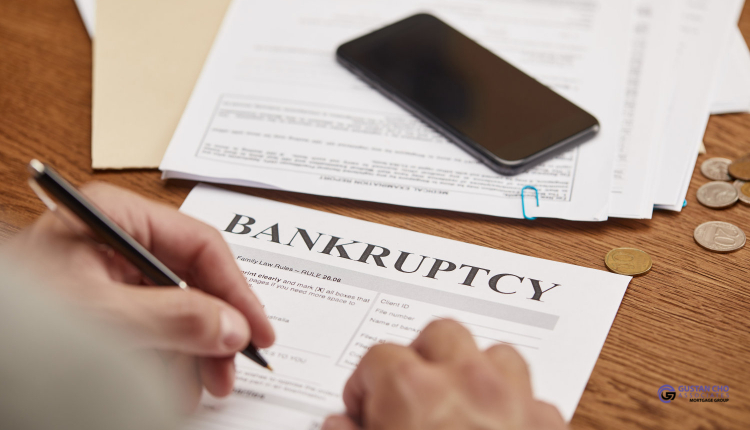Mortgage Guidelines After Foreclosure To Qualify For Home Purchase
This Article Is About Mortgage Guidelines After Foreclosure To Qualify For Home Purchase. Experiencing a foreclosure can be a challenging experience but still, it doesn’t mean you can never repurchase a home. Lenders have definite waiting periods and guidelines for borrowers who have had a foreclosure. Learning these guidelines can help you plan your next steps toward homeownership.
Mortgage borrowers can qualify for a mortgage after a housing event. A housing event is a foreclosure, deed in lieu of foreclosure, or short sale.
Every loan program has its own waiting period requirements after a housing event. The waiting period start date starts from the date the homeowner has the deed of the home out of their name and into the name of the new owner. The waiting period does not start when the homeowner has surrendered the property. In this article, we will discuss and cover the agency mortgage guidelines to qualify for a mortgage after a housing event.
Qualifying For A Mortgage After A Housing Event And Bankruptcy
Homebuyers can get a second chance of becoming homeowners after foreclosure and bankruptcy. Mortgage Guidelines After Foreclosure and Bankruptcy have waiting period requirements on FHA, VA, USDA, Conventional Loans. However, there is no waiting period after foreclosure and/or bankruptcy per NON-QM Mortgage Guidelines After Foreclosure. NON-QM Loans are alternative finance home loan programs offered by Gustan Cho Associates with no waiting period requirements. There is no mandatory waiting period after housing event and/or bankruptcy with non-QM mortgages There are no maximum loan limits like government and conventional loans. Gustan Cho Associates offers bank statement loans for self-employed borrowers where income tax returns are not required.
Had a Bankruptcy or Foreclosure?
Apply Now and Find Out When You Can Qualify for a Mortgage AgainMortgage Guidelines After Foreclosure On Waiting Period Requirements
Government and conventional loans have a mandatory waiting period after housing events and/or bankruptcy to qualify for a new mortgage. Waiting Period Mortgage Guidelines After Foreclosure depends on the particular loan program. NON-QM Loans are portfolio loans offered by Gustan Cho Associates that have no waiting period after foreclosure or bankruptcy.
Based on the mortgage guidelines after foreclosure and/or bankruptcy the waiting period applies to FHA, VA, USDA, and Conventional Loans.
This applies to buying a home after Chapter 7 and 13 Bankruptcies, during Chapter 13 Bankruptcy Repayment Plan, after foreclosure, after a deed in lieu, after a short sale. Good news is there are alternative financing loan programs with no waiting period after foreclosure or bankruptcy called non-QM loans. We will be covering mortgage guidelines after foreclosure and/or bankruptcy one day out of housing event and/or bankruptcy.
Mortgage Guidelines After Chapter 7 Bankruptcy Discharge
There is a mandatory waiting period after Chapter 7 Bankruptcy on government and conventional loans. HUD, the parent of FHA, requires a two-year waiting period after Chapter 7 Bankruptcy discharged date. VA also requires 2 year wait period. Borrowers can qualify for VA and FHA Loans one year into Chapter 13 Bankruptcy discharged date.
There is no waiting period to qualify for VA and FHA Loans after Chapter 13 Bankruptcy discharged date.
USDA requires a 4-year waiting period. Fannie Mae and Freddie Mac require 4 year waiting period on conventional loans. The four-year waiting period after Chapter 13 Bankruptcy dismissal date to qualify for conventional loans. Conventional loans require two year waiting period after Chapter 13 discharged date. No waiting period after housing event and/or bankruptcy with non-QM loans.
Mortgage Guidelines After Foreclosure: Waiting Period On Government And Conventional Loans
Unlike NON-QM Loans, Government and Conventional Loans have waiting period requirements after housing event:
- Three year waiting period after foreclosure, deed in lieu, a short sale on FHA and USDA Loans
- Two year waiting period after foreclosure, deed in lieu of foreclosure, short sale on VA Loans
- Four year waiting period after a deed in lieu and/or short sale after a deed in lieu and/or short sale on conventional loans
- Seven-year waiting period after foreclosure to qualify for conventional loans
Mortgage Guidelines After Foreclosure And Bankruptcy On NON-QM Loans
Non-QM Loans are portfolio loans and alternative financing mortgage programs.
- Minimum down payment is 10% to 20% down payment on home purchase
- Down payment requirements depends on borrowers credit scores, seasoning after bankruptcy/foreclosure, reserves, and debt to income ratios
- NON-QM Loans are for both home purchase and refinance mortgages
- NON-QM Loans are ideal for divorced borrowers with bad credit who need to take the spouse off the mortgage note
- Cash-Out NON-QM Loans is available up to 80% Loan To Value
- Gustan Cho Associates offers 12-24 month bank statement loans for self employed borrowers with no income tax returns required and no waiting period after foreclosure/bankruptcy
- There is no maximum loan limit and no private mortgage insurance required on bank statement loans
- Credit score requirements can be as low as 500. Debt to income ratio caps up to 55% DTI with compensating factors
- Adjustable-Rate and Fixed-Rate Mortgages available on non-QM loans
NON-QM Loans are for owner occupant, second homes, and investment properties. Loan limits up to $3 million. No private mortgage insurance required.
Voluntary Foreclosure
A voluntary foreclosure is a foreclosure where you just turn in your keys to the mortgage lender. If you can negotiate terms with the mortgage lender that if you turn in your keys, they will not go after you for the deficiency, that is known as a deed in lieu of foreclosure. If the lender grants you a deed in lieu of foreclosure, the lender will not come after you for a deficiency judgment. A person can qualify for a 5% down payment conventional loan if they have a deed in foreclosure in just four years.
Involuntary Foreclosure FAQ
An involuntary foreclosure is when you fight the foreclosure to the end and the sheriff comes over and throws your belongings out. Most folks leave before they have a sheriff’s eviction. The lender can come after you for the deficiency and a judge can impose a deficiency judgment on you. Most lenders do not come after foreclosure deficiency judgments.
Foreclosure FAQ On Foreclosure Proceedings
According to mortgage guidelines after foreclosure, there are ways of avoiding foreclosure proceedings. The lender will want all of your current financial situation such as your gross monthly income and your monthly expenses. Lenders will not want the property. They will do everything possible to help homeowners either keep or sell the property. However, they need to see if they give homeowners a loan modification, the borrower is able to afford the payments.
Forbearance
Your mortgage lender might give you a 3 month or 6-month forbearance where they can add your delinquent payments to the back of your mortgage loan. Or they might want you to just pay property taxes and insurance and give you a break on the mortgage payments. I strongly recommend that you contact your lender prior to you being late with your mortgage loan. You will be surprised how much your lender will want to work with you if you contact them while you are current with your mortgage payments. Your mortgage lender might even offer you a mortgage loan modification where they will decrease your monthly payments.
Short Sale And Pre-Foreclosure Sale
Under the mortgage guidelines after foreclosure, you may qualify for a pre-foreclosure sale or short sale to avoid full foreclosure by selling your home for an amount that is less than your mortgage amount. Many lenders will work with you on short sales. This is because they do not want to hold your home on their books
Deed In Lieu Of Foreclosure
According to mortgage guidelines after foreclosure, Deed in lieu of foreclosure is when you turn in your home keys to the lender. The lender agrees not to sue you for the deficiency. This method is better than a foreclosure because you will avoid a deficiency judgment. On a deed in lieu of foreclosure, you will not be liable for back taxes.
FHA Mortgage Loan Programs
If you have an FHA insured mortgage loan, the lender can probably assist you to receive a one-time assistant program from the FHA mortgage insurance fund.
- The requirements to receive this one-time payment from FHA insurance fund is that you must be late at least 4 months on your FHA mortgage loan but no later than 12 months on your monthly payments
- You need to show proof that once you receive this one-time payment from FHA that you will no longer be past due on your mortgage payments
- You must sign a promissory note with FHA that allows HUD to put a lien on your home for the amount you have received from the FHA insurance fund
- The amount given to you is an interest-free loan but not for free
The money needs to be repaid when you refinance or sell your home.
Homeowners With Underwater Mortgages
A large percentage of homeowners had mortgage loan balances that were higher than the value of their homes. Foreclosure rates hit a historical high. A large percentage of mortgage loan borrowers had subprime mortgage loans with teaser rates. The introductory rate on a negative amortization. When the mortgage loan adjusted to the new mortgage rates, it doubles or tripled sometimes. Homeowners could no longer afford their new adjusted mortgage rate payments and were forced to foreclosure.
Extenuating Circumstance Due To Unemployment With Mortgage After Foreclosure
The recession might be over technically but the economy is still bruised.
- Unemployment numbers may be reduced according to economic reports but many workers have given up looking for jobs
- Many skilled workers are underemployed where they are now in jobs that they are overqualified for
- The mortgage industry has lost over half of its workforce
- Many in the real estate and construction fields still remain unemployed or have left the field altogether
By way of the mortgage guidelines after foreclosure, those who have recovered and had a prior foreclosure can now qualify for a mortgage after foreclosure.
Get Personalized Mortgage Help After Bankruptcy or Foreclosure
Apply Now And Get recommendations From Loan ExpertsQualifying For FHA Mortgage After Foreclosure
FHA has the most lenient qualification requirements in qualifying for a mortgage after foreclosure. In line with mortgage guidelines after foreclosure, there is a mandatory three-year waiting period to qualify for an FHA mortgage after foreclosure. The waiting period starts from the recorded date of the foreclosure or the date of the sheriff’s sale and not the day you turned in your keys. The waiting period starts when the deed of your home has been transferred out of your name and into the name of the lender.
Mortgage With Bad Credit
Under the mortgage guidelines after foreclosure, besides the waiting period requirements, the borrower needs at least a 580 FICO credit score to qualify for a 3.5% down payment FHA loan. Mortgage underwriters expect the borrower to have re-established credit and no late payments in the past 12 months. Borrowers with credit scores of under 600 FICO may need to provide verification of rent.
Conventional Mortgage Guidelines After Foreclosure
Conventional Loans have a tougher stance when it comes to a mortgage after foreclosure. According to mortgage guidelines after foreclosure, there is a 7-year mandatory waiting period to qualify for a conventional mortgage after foreclosure. The waiting period starts from the recorded date of the foreclosure which is reflected on the recorder of deeds office and/or public records
Mortgage Part Of Bankruptcy
If you have had your mortgage part of your bankruptcy, following the mortgage guidelines after foreclosure, the waiting period starts from the discharge date of your bankruptcy and not the recorded date of your foreclosure. If you had a mortgage part of bankruptcy, you can have your foreclosure recorded after the discharge date of your bankruptcy. There is a mandatory 4-year waiting period to qualify for a conventional loan if you had mortgage part of the bankruptcy
Frequently Asked Questions
1. How long after foreclosure can I qualify for a mortgage?
Mortgage guidelines after foreclosure says it depends on the loan type:
- FHA Loan – 3-year waiting period
- VA Loan – 2-year waiting period
- USDA Loan – 3-year waiting period
- Conventional Loan – 7-year waiting period (4 years with extenuating circumstances)
- Non-QM Loans – No waiting period in some cases
2. Can I buy a house before the waiting period is over?
Yes, mortgage guidelines after foreclosure allows you with a Non-QM Loan or hard money loan, but expect higher interest rates and a larger down payment.
3. What are extenuating circumstances for a shorter waiting period?
Situations beyond your control, like a job loss, medical emergency, or death of a primary earner, may qualify you for a reduced waiting period on conventional loans.
4. Does foreclosure affect my credit score?
A foreclosure could remain on your credit report for7 years and can drop your credit score by 100-200 points.
5. Can I get a mortgage if my foreclosure was included in bankruptcy?
Based on mortgage guidelines after foreclosure, for FHA, VA, and USDA loans, the waiting period starts from the foreclosure date, not the bankruptcy discharge. For Conventional Loans, the 4-year waiting period starts from the bankruptcy discharge date, even if the foreclosure happened later.
6. How to rebuild my credit after foreclosure to qualify for a mortgage?
Pay all bills on time, reduce debts, establish new credit responsibly, and avoid new derogatory marks.
7. Can I use a co-signer to qualify for a mortgage after foreclosure?
Per mortgage guidelines after foreclosure, the answer is yes. A co-signer can help you qualify, but their credit and financials will also be evaluated.
8. Are there down payment assistance programs for borrowers with past foreclosures?
Certain state and local programs provide down payment assistance to eligible borrowers who meet specific income and credit criteria, even after experiencing a foreclosure.
9. Do lenders have overlays that extend waiting periods beyond guidelines?
Some lenders impose stricter rules (overlays) than FHA, VA, or conventional guidelines. Collaborating with a lender with no overlays and deep knowledge about mortgage guidelines after foreclosure can help you qualify faster.
10. Can I qualify for a mortgage after multiple foreclosures?
Based on mortgage guidelines after foreclosure, yes, you can still qualify, but lenders may require a longer waiting period, substantial compensating factors, and a higher down payment.
Qualifying For Mortgage With Direct Lender With No Overlays
Borrowers who has additional questions about mortgage guidelines after foreclosure or with prior housing events and/or bankruptcies who need to qualify for a mortgage with a mortgage company licensed with multiple states with no lender overlays can contact us at Gustan Cho Associates at 800-900-8569 or text us for a faster response. Or email us at alex@gustancho.com. Gustan Cho Associates has no overlays on government and conventional loans. We are experts in non-QM and bank statement loans for self-employed borrowers.








